

This article gives you a glimpse of what you can learn with Shortform. Shortform has the world’s best guides to 1000+ nonfiction books, plus other resources to help you accelerate your learning.
Want to learn faster and get smarter? Sign up for a free trial here .
What are the keys to successful business management? How can you be the best leader possible, be it of a start-up or a Fortune 500? Finding the best, most insightful, and most practical business management books can be difficult, so we’ve done the hard work for you, narrowing down the extensive list to the 15 best business management books.
Here’s our carefully researched list of the 15 best business management books of all time. To compose this list, we used quantitative criteria such as:
- High-quality recommendations from successful leaders like Sheryl Sandberg, Jeff Bezos, Warren Buffett, and Tim Ferriss.
- Number of weeks on bestseller lists like the New York Times
- Common perception and ratings by common readers, from networks like Amazon and Goodreads
Don’t have time to get the benefits of reading all the best business management books? That’s where Shortform comes in. With Shortform, you can get the key lessons from the best business management books in minutes, not in hours. Our experts condense the key lessons from business management books like these into an efficient summary. Check out our high-quality summaries of these 15 books to see if you can learn more quickly.
1. The E-Myth Revisited: Why Most Small Businesses Don’t Work and What to Do About It, by Michael E. Gerber
Many people dream of quitting a job and becoming their own boss by starting a business. A million new businesses are started each year, but 40 percent fail within the first year and 80 percent fail within five years. Underlying the high failure rate are persistent romantic notions about how businesses are born and what it takes to succeed.
In The E-Myth Revisited, Michael E. Gerber explains how focusing solely on the product undermines new businesses and just trying to work harder undermines new businesses. The right approach is to view your business like a franchise—to systematize operations so that it no longer relies on you. This thirty-year-old classic is a part-practical and part-philosophical guide to conceptualizing and starting a business.
Tim Ferriss says, “I recommend his bestseller, The E-Myth Revisited, as the must-read classic on automation.” After reading the book, he says, “I decided that extreme questions were the forcing function I needed,” making this a valuable best business management book.
2. Good to Great: Why Some Companies Make the Leap…and Others Don’t, by Jim Collins
In Good to Great, former Stanford business professor Jim Collins offers a primer on turning the average into the exceptional. Through detailed case studies of 11 companies that went from tracking the market to exceeding it by at least 3x, Collins presents the key factors that separate merely good organizations from great ones—from rare leadership to disciplined thinking to the dogged pursuit of a core mission.
Whether you’re an entrepreneur, a manager, or just an individual looking to improve, the concepts in Good to Great provide food for thought—and spurs to action. You’ll learn what it takes to be a “Level 5” leader, why assembling the right team first is more important than having the right idea, why you should be more like a hedgehog than a fox, and why “stop doing” lists are as important as “to do” lists.
According to Brad Stone’s The Everything Store, Jeff Bezos recommends Good to Great to Amazon employees. Apparently, Collins spoke to Amazon executives about the book’s theories before it was published, asserting that “companies must confront the brutal facts of their business, find out what they are uniquely good at, and master their fly wheel, in which each part of the business reinforces and accelerates the other parts.”
3. Emotional Intelligence: Why It Can Matter More Than IQ, by Daniel Goleman
Do you constantly get swept away by your emotions? Would you like to learn how to control your emotional reactions at home or at work? Or maybe you’re uncomfortable with emotions, and don’t understand why you or anyone else feels them? Emotional Intelligence by Daniel Goleman is a comprehensive look at what emotions are and why we have them, how we can get better at managing them, and why the well-being of humanity might depend on us doing so.
In the New York Times Book Review, Warren Bennis writes, “Anyone interested in leadership . . . should get a copy of this book.” Although a book on emotional intelligence may not seem like it belongs on a list of the best business management books, leaders agree that it’s a critical read for CEOs.
4. How to Win Friends and Influence People, by Dale Carnegie
How to Win Friends and Influence People
by Dale Carnegie
26 min reading time
361.2k reads
audio version available
How to Win Friends and Influence People is one of the best-selling books of all time. It contains universal principles of interacting with other people to get them to like you and have them see your way of thinking. This isn’t about manipulation – it’s about sincerely approaching people, believing they’re important, and treating them likewise. Learn how to become a great conversationalist without saying anything, how to make other people feel important, and how to change other people’s minds without offending them.
Billionaire venture capitalist and author of Measure What Matters John Doerr recommends How to Win Friends as one of the best books for leaders.
5. The One Minute Manager, by Kenneth Blanchard and Spencer Johnson
The One-Minute Manager
by Ken Blanchard and Spencer Johnson
11 min reading time
26.1k reads
audio version available
The One Minute Manager is a guide for managers looking to empower their employees and teach them to succeed in their jobs, with minimal direct guidance. As the title suggests, most of what we consider “management” takes one minute or less. One-minute managers build their employees up by defining success through short one-minute goals and performance standards; providing immediate and direct positive feedback through one-minute praisings; and offering constructive criticism aimed at correcting behavior through one-minute redirects. This management style motivates employees and gives them the confidence and skills to become stewards and champions of their own success.
The One Minute Manager has been used by millions of leaders to succeed in their professions, making it one of the most-used and best business management books of all time.
6. The 7 Habits of Highly Effective People, by Stephen R. Covey
The 7 Habits of Highly Effective People
by Stephen R. Covey
55 min reading time
36.6k reads
audio version available
Do you want to make your life better? Are you struggling in your personal or professional life, your interactions with other people, your life balance, or your life’s purpose?
The 7 Habits of Highly Effective People provides an inside-out approach to improving yourself and your life. This method entails examining and adjusting your character, your motives, and how you see the world in order to change how you behave and how you interact with others. Learn how to best focus your time, define your personal mission, and build productive relationships with other people.
Good to Great author Jim Collins writes of The 7 Habits, “The ideas embedded in the framework are timeless. They are principles. This is why they work, and why they speak to people in all age groups around the globe. In a world of change, disruption, chaos, and relentless uncertainty, people crave an anchor point, a set of constructs to give them guidance in the face of turbulence….As I reflect upon some of the exceptional leaders I’ve studied in my research, I’m struck by how Covey’s principles manifest in many of their stories.”
7. Who Moved My Cheese?: An A-Mazing Way to Deal with Change in Your Work and in Your Life, by Spencer Johnson
We all experience change in our lives. It can be distressing or rewarding, depending on our approach. “Who Moved My Cheese” is a parable that demonstrates in practical terms how to handle change better and avoid pitfalls, by practicing a few key principles: anticipate and prepare for change, overcome fears, envision success, and enjoy change. By depicting simple, memorable characters and scenarios, the parable gives you a framework for responding to change successfully.
Southwest Airlines reportedly ordered copies of Who Moved My Cheese? for all 27,000 of its employees, and it’s been recommended by executives at General Electric, Hewlett-Packard, and Proctor & Gamble. Clearly, many companies put this at the top of their list of best business management books.
8. Originals: How Non-Conformists Move the World, by Adam Grant

Want to fast-track your learning? With Shortform, you’ll gain insights you won't find anywhere else .
Here's what you’ll get when you sign up for Shortform :
- Complicated ideas explained in simple and concise ways
- Smart analysis that connects what you’re reading to other key concepts
- Writing with zero fluff because we know how important your time is


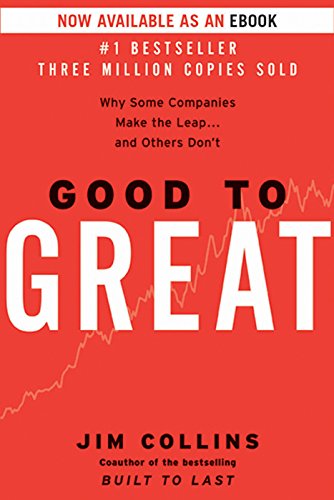
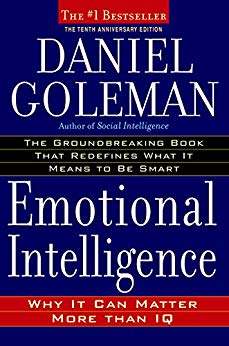
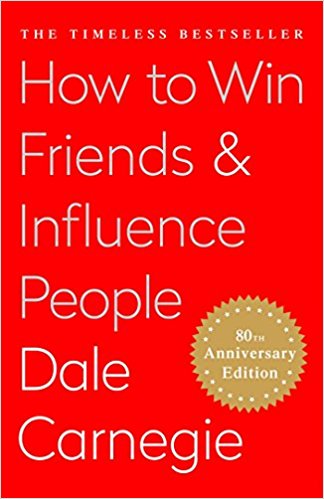
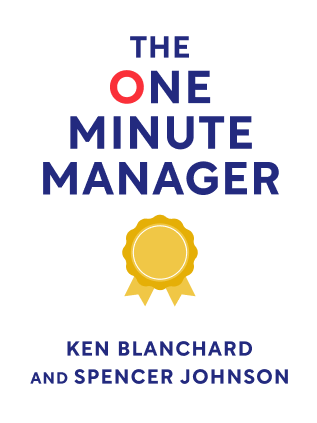
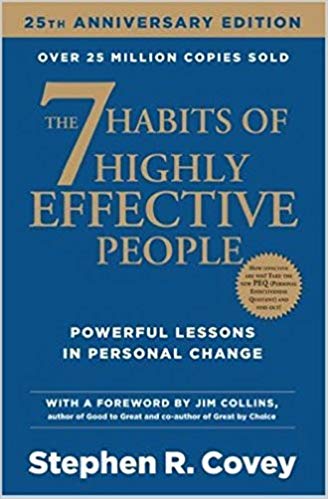
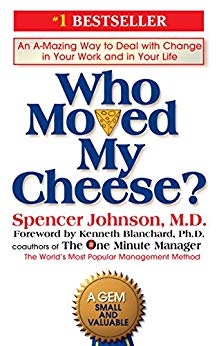
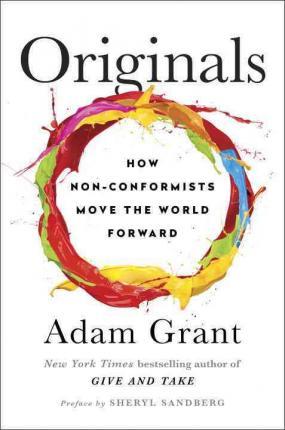






Thank you for sharing these best business management books. IT was very helpful for me. I will start reading this book today. Thank you so much….